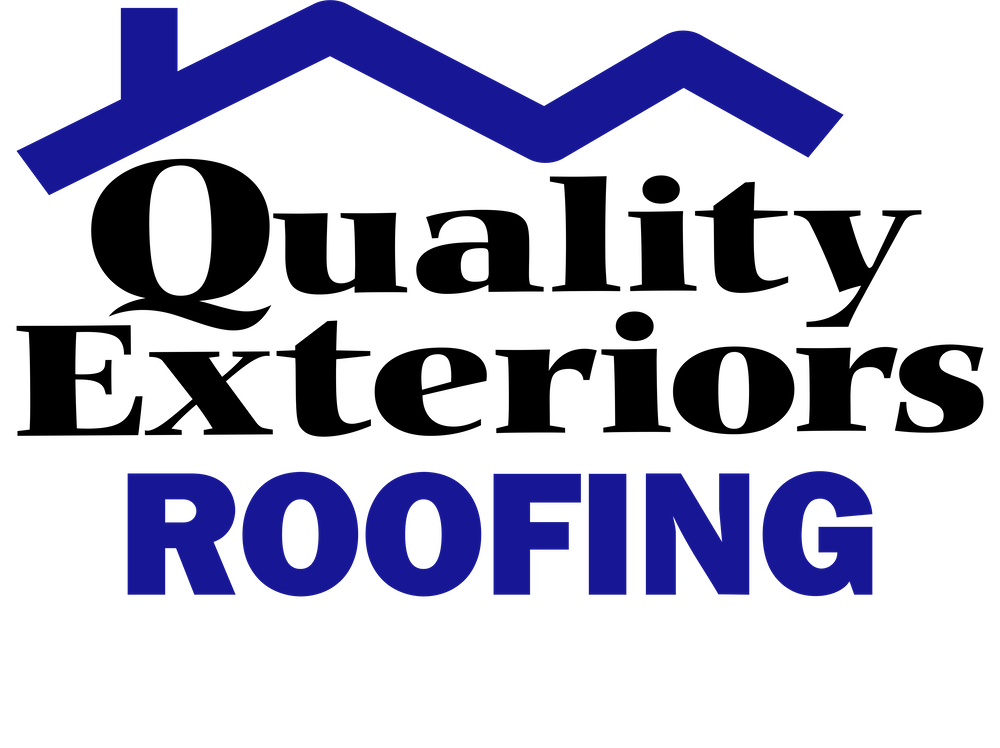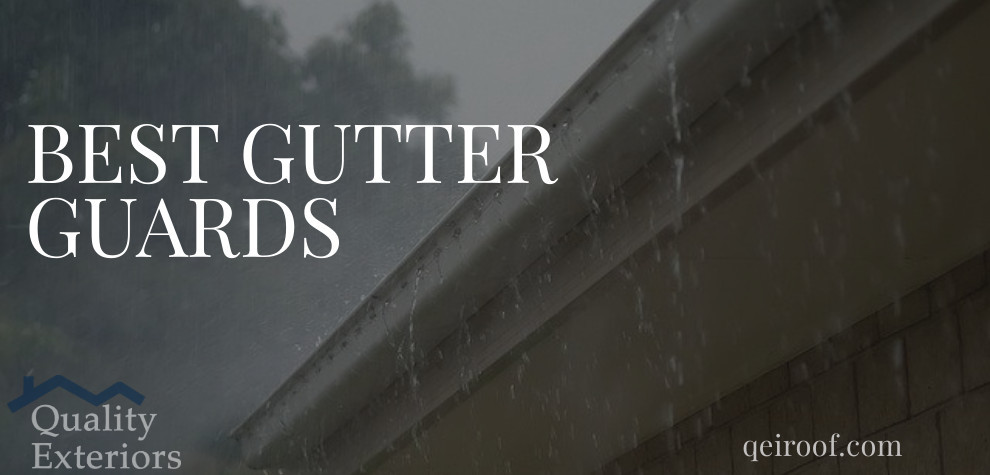Managing sudden downpours and rainwater drainage might not be at the forefront of minds during the final blazing days of August. But, when the weather is drier, considering options for upgrades or improvements to water management systems can prevent potential damage or repairs later. Below our Bossier City, Louisiana roofing contractors provide helpful tips and a guide to the best gutter guards and debris management systems for household water drainage setups.
What Are Gutter Guards?
A gutter guard system works to keep leaves, twigs, and debris from creating clogs in rain gutters or downspouts. They essentially act as a barrier for anything within your gutter system and assist in preventing clogs and water accumulation. The best gutter guard system for each usage type depends on the location, surrounding plants/trees, and individual project budget.
If you’re considering the best gutter guards for the Shreveport-Bossier area, we offer a variety of roofing services!
What Can Gutter Guards Prevent?
When installed, gutter guards not only reduce time spent cleaning gutters, but also extend lifespans of gutter systems. Other advantages to using gutter guard systems are listed below.
Clogged Gutters
Left unattended, gutters will fill with debris. As these items take on additional water, they expand and gain weight, getting stuck within the gutter system.
As the gutters begin to overflow, the possibility for water to pour down exterior walls increases. If enough water accumulates the building foundation can be damaged. The probability of exterior staining or other water damage also increases through clogged gutters.
Pest Infestations
As a gutter becomes clogged with debris, the free flow of water stops. This creates the opportunity for common pests to nest. Whether small rodents, mosquitoes, or birds, the additional blockages promote stagnant water, which attracts creatures seeking moisture-rich environments… and their predators.
Rust Prevention
When a gutter system can’t drain, moisture never fails to escape the inside of the system. This leads to an accumulation of moisture that contributes to the rust and corrosion of the gutter. Gutter guards serve the purpose of keeping the internal channels clean. This allows for the gutter system to properly dry, extending the life of the gutters.
Frozen Gutter Dams
As the weather turns cold, the stagnant water that once promoted unwanted infestations now poses another risk: Frozen Gutter Dams. When unable to flow properly, the water inside of a gutter can freeze and block any melted ice from draining. A gutter guard may not totally prevent this occurrence, but preventing unnecessary buildup accumulation limits the potential for frozen blockages.
Frozen water also carries the risk of too much weight within the gutter system. If a gutter is too heavy, the possibility exists that it will break free from its mounts and damage the exterior of the home.
Maintenance Accidents
Climbing ladders and working from the roof of houses, while routine, still carries a sizable amount of risk. Utilizing a guard system eliminates the need to get into such a precarious position.
A guard system reduces the frequency and need to constantly scale a ladder and hang over the edge of a home’s roof. The leaves and other potential debris simply cascade over the side of the gutter instead of becoming wedged in the gutter channels.
What Are the Best Types of Gutter Guards?
Gutter guard systems primarily fall into five categories:
- Brush gutter guards
- Foam gutter guards
- Reverse curve gutter guards (also called surface tension)
- Screen gutter guards
- Mesh gutter guards
Brush Guards
Considered one of the cheapest and most simple options, brush gutter guards serve as an easily-installed filter for gutters. The guards, shaped like cylindrical brushes with tall bristles, sit in the gutters and keep debris from falling into the bottom of the gutter. Water is able to flow below the materials. The Brush Guards are often made of highly-durable materials able to withstand harsh conditions without breaking down.
Seen as a convenient, low-effort method for gutter drain management, brush guards also find themselves among the cheapest options available. The lack of specialized equipment for installation and one-size-fits-all convenience aids in the popularity of the guard.
Despite the advantages, brush systems still require manual clearing of any debris that the brush bristles catch. Because of this, brush guards are best described as a tool meant to ease the work when cleaning gutters. They don’t serve as a device intended to eliminate the process altogether.
Foam Guards
Foam gutter guards serve a similar role to brush gutter guards in that they also sit within the gutter system and act as a barrier to debris. Water flows through the structure as if it were a sponge. Also considered to be easy to install, foam gutter guards suffer from durability concerns. They also require replacement more often than other systems. The accumulation of mold or fungus also remains when using foam gutter guards.
Reverse Curve Guards
Another form of system sees its design date back over a century. Essentially serving as a gutter umbrella, reverse curve gutter guards sit on top of gutter systems. Reverse curve gutter guards cover the open portion of the gutter system and direct water or debris over the edge of the gutter system. The small opening within the system prevents animals like rodents or birds from entering.
While the design is tried and true, reverse curve gutters systems are not without their faults. Prone to collecting dirt and sediment, the gutter system opening can become covered in oil or dirt and lose effectiveness. Small insects can also manage to get inside the gutter and build nests.
Perhaps most importantly, reverse curve gutter systems require professional installation and carry a higher total cost than other gutter systems.
Screen Guards
Coming in two distinct styles, flat and hinged, screen gutter guards consist of panels with tiny holes that filter water from debris. Hinged guards curve away from the gutter. They possess a slope that debris travels down and over the guard itself. Attachment to the gutter is found on the outer edge, so that they can be lifted and the inside of the gutter can be thoroughly cleaned. Flat guards consist of a slat panel usually installed below the shingles. This aids in durability, but makes cleaning more difficult. Both styles are primarily fabricated from metal, as opposed to delicate plastics.
Either style of screen guard comes with challenges. Rounded guards run the risk of debris becoming stuck and water flowing back into the gutter. They also face removal as a result of high winds. While flat guards are more aerodynamic, they cannot open easily and potentially damage roof shingles. Both styles require cleaning to ensure proper function.
Mesh Guards
Working in similar ways of screen systems, mesh gutter guards serve as a filter to any debris. Water passes through the mesh and runs through the gutter system. Mesh systems have smaller hold than a screen guard. Like screen guards, however, mesh guards come in two styles — a flat guard and an angled guard. The mesh is typically made of metal, providing increased durability.
It goes without saying that whatever form of gutter guard system chosen will come with a unique set of challenges. The importance of knowing potential problems and how to manage them is paramount. At very minimum, gutter guard systems, regardless of style, have the ability to improve the experience of maintaining proper water drainage.
How Much Do Gutter Guards Cost?
As with any home improvement project, the price is determined by a number of factors, including the type of material, amount of materials, and complexity of the task. The national average for a gutter guard installation reaches around $1100. Low-end prices come in at around $500-600, while high-end prices can reach $1500 easily. Cost savings may be found through DIY methods, but the professional installation proves to be the most effective over time.
Looking for the Best Gutter Guards? Contact QEI Today!
When looking to make home repairs or upgrades, you want to work with a name you can trust. The team at QEI has over 60 years of experience and work to stand behind. Contact us today for a free estimate or free inspection! Reach us by calling (318) 747-1254 or leave us a message on our website.

